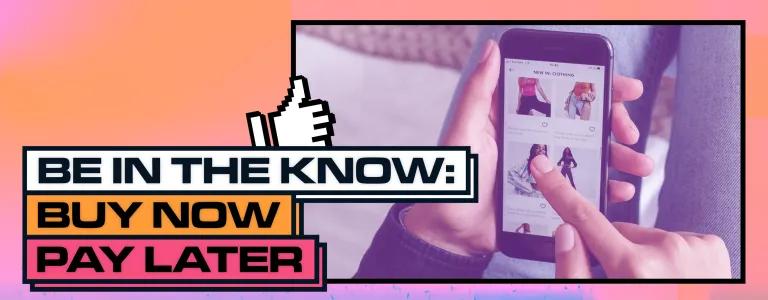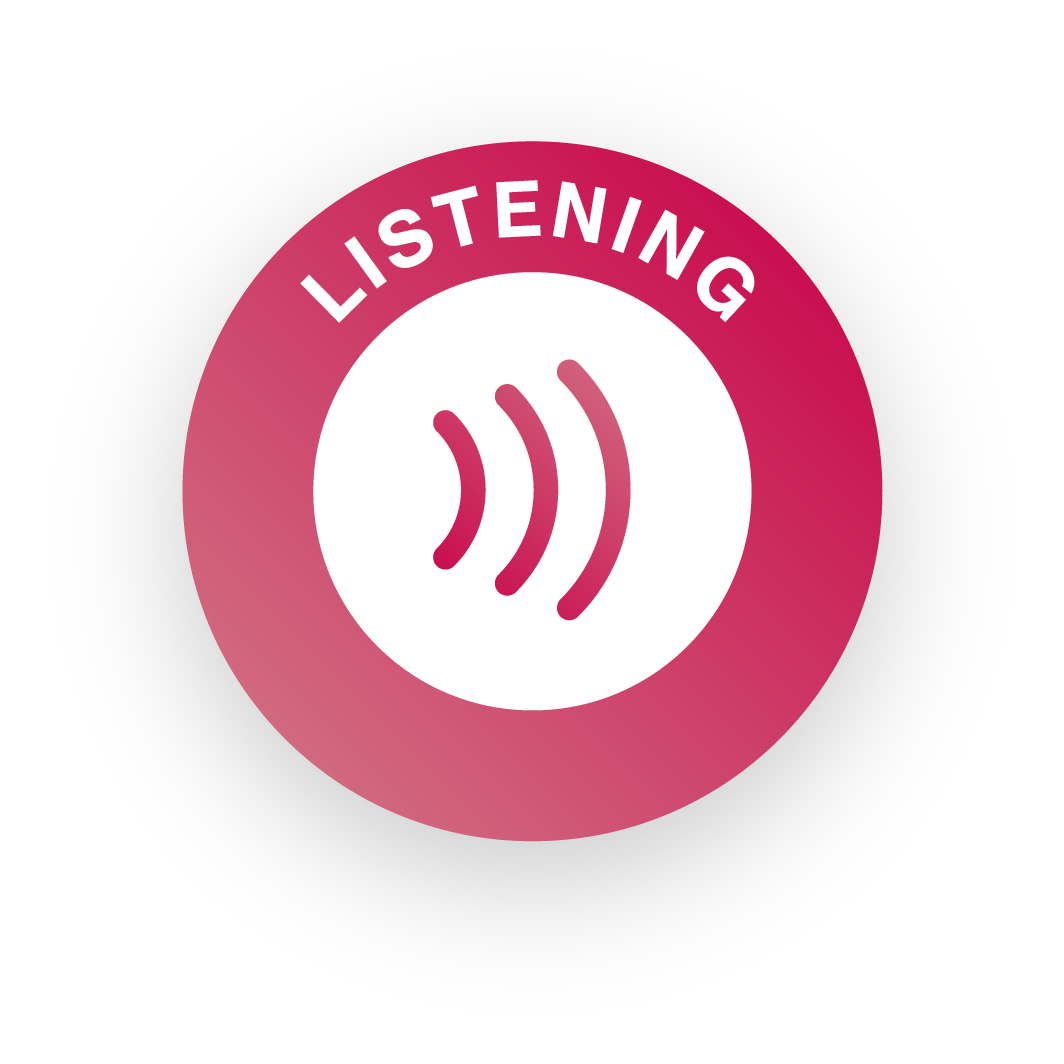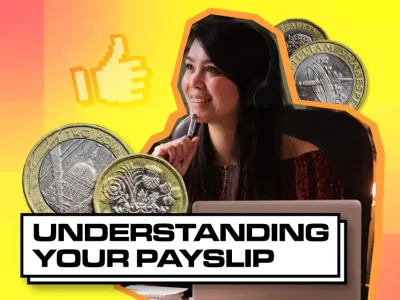
Be In The Know: Buy Now Pay Later
With Karleen from the Money and Pensions Service.
You're shopping online. You’ve found the thing you want to buy. You’ve clicked through to the checkout. Maybe you’re feeling excited. You can’t wait to have it arrive at your door. All you have to do now is pay for it.
You’ll probably be faced with a variety of ways to pay, including ‘pay by card’ and ‘Paypal’. And there’ll likely also be the option of ‘Buy Now Pay Later’ which can often seem like the quickest and easiest option. You have to be over 18 to apply for Buy Now Pay Later, but whether or not you’ve already had that milestone birthday, it’s good to be aware of what it really entails. Here at NCS we’ve invited Karleen from the Money and Pensions Service to bring you the lowdown.
What are the different types of Buy Now Pay Later?
Buy Now Pay Later is essentially a form of credit (borrowing money and paying it back later). There are different agreements available, including:
- Pay in several smaller equal payments. Here, you’re spreading the cost of your payment over a few weeks or months.
- Pay the full amount after a fixed period. This is where you get an interest-free period, and then the full payment will be taken from your account on an agreed date.
Who are you borrowing the money from?
When you agree to Buy Now Pay Later you’re agreeing to borrow money, and that agreement is usually with a separate credit provider rather than the shop that you’re buying the product from.
Are there interest or extra charges?
You usually don’t pay any interest or charges on the amount you’ve borrowed — but that’s only if you keep to the repayment agreement.
So, if you can keep up with repayments, and have enough money in your bank account, then Buy Now Pay Later can be a good way to spread the cost. The problem comes when you can’t make the repayments, as you could then end up paying a lot more than you expect. As with any form of borrowing, there are things to watch out for.

THINGS TO WATCH OUT FOR
1. Think about how you’ll make the payments
It’s easy to click ‘Buy Now Pay Later’ at the checkout and it can feel so seamless that you’re not even aware that you’ve chosen to pay in this way.
And there’s often messaging to encourage you to choose Buy Now Pay Later — for example, maybe you’re offered a discount if you choose that payment option. Always make sure you give yourself enough time to think about what you’re buying and how you’ll pay for it.
2. Check the terms and conditions
The small print about what you’re signing up for could be buried somewhere on the website. It’s often hard to work out exactly which repayment plan you’ve taken out, or whether it’s the best one for you. So do read the T&Cs, rather than simply ticking a box without reading them. If you don’t, you won’t be aware of what’ll happen if you miss a payment or can’t afford to repay what you’ve borrowed.
3. You can be approved even if you can't afford it
Most companies offering Buy Now Pay Later only carry out minimal credit checks. So they won’t know whether you can afford to repay what you owe.
This may seem great, especially if you’ve been turned down for other credit. But credit checks are there to protect you and prevent you from overstretching yourself and ending up in lots of debt.
Plus, if you have a few Buy Now Pay Later agreements and are juggling other loans as well, then it can be difficult to have a clear view of all your commitments and there’s a bigger risk that you’ll fall into problem debt.

4. Your consumer protection could be limited
Buy Now Pay Later agreements which last less than 12 months aren’t regulated by the Financial Conduct Authority (FCA), which means you don’t get full consumer protection if something goes wrong. For example, you won’t be able to make a complaint to the Financial Ombudsman Service if something goes wrong or you feel you’re unfairly treated if you fall into financial difficulty.
While some providers do offer in-house dispute resolution services, they won’t be impartial, and the services vary from provider to another which can be confusing if you’re dealing with more than one provider.
5. You’re not protected by Section 75
If you have a credit card (which you need to be over 18 to apply for), and you use it to pay for something over £100 then if there is a problem with it you can make a complaint to the retailer and ask for a refund under the Section 75 Regulations.
However, even if you make your Buy Now Pay Later repayments using a credit card, you’re not covered under Section 75. This is because you’re making the payment to the Buy Now Pay Later provider, rather than the shop where you bought the item. So, check what buyer protection is included in the agreement. For example, some providers will pause payments until the issue is resolved. Or they might refund any payments you've already made if the dispute is settled in your favour. Be aware these are policies rather than legal rights.
6. Buy Now Pay Later can affect your credit score
Applying usually only involves a soft credit check, so this shouldn’t affect your credit rating if you keep up with payments. However, some providers will do a hard credit check before you set up an account with them, and that could affect your rating.
If you are applying for other credit, you may be asked about any Buy Now Pay Later products — if you have a lot of them then it could affect your access to other forms of credit.

7. Keep track of your payments
Keeping a record of when your payments are due is vital to avoid additional charges. Some Buy Now Pay Later providers will offer you access to an account on their app or website where you can see your payments and when they’re due.
Many providers will message you before each payment is due, but because they aren’t regulated by the FCA they don’t have to.
What happens if you miss a payment or can't keep up with repayments?
If you don’t keep up with your repayments, you can be charged a penalty fee (or the payment can be rolled into the next one). If you’re still unable to make payments, some providers will pass your debt on to a debt collection agency to collect payments.
This means that if you are struggling to pay, it’s important to contact your provider to explain your situation. Most will try to work with you to find a solution. Look in the terms and conditions section of their website to find out what support is available.
Buy Now Pay Later can be useful in helping to spread the cost. But it shouldn’t be used as a way of paying for things that you can’t really afford.
If you do ever find yourself struggling with money, you can talk to a specialist at Money Helper by visiting the website www.moneyhelper.org.uk or by calling 0800 011 3797.
Include this article in your Skills Builder Journal. It could help you develop...





